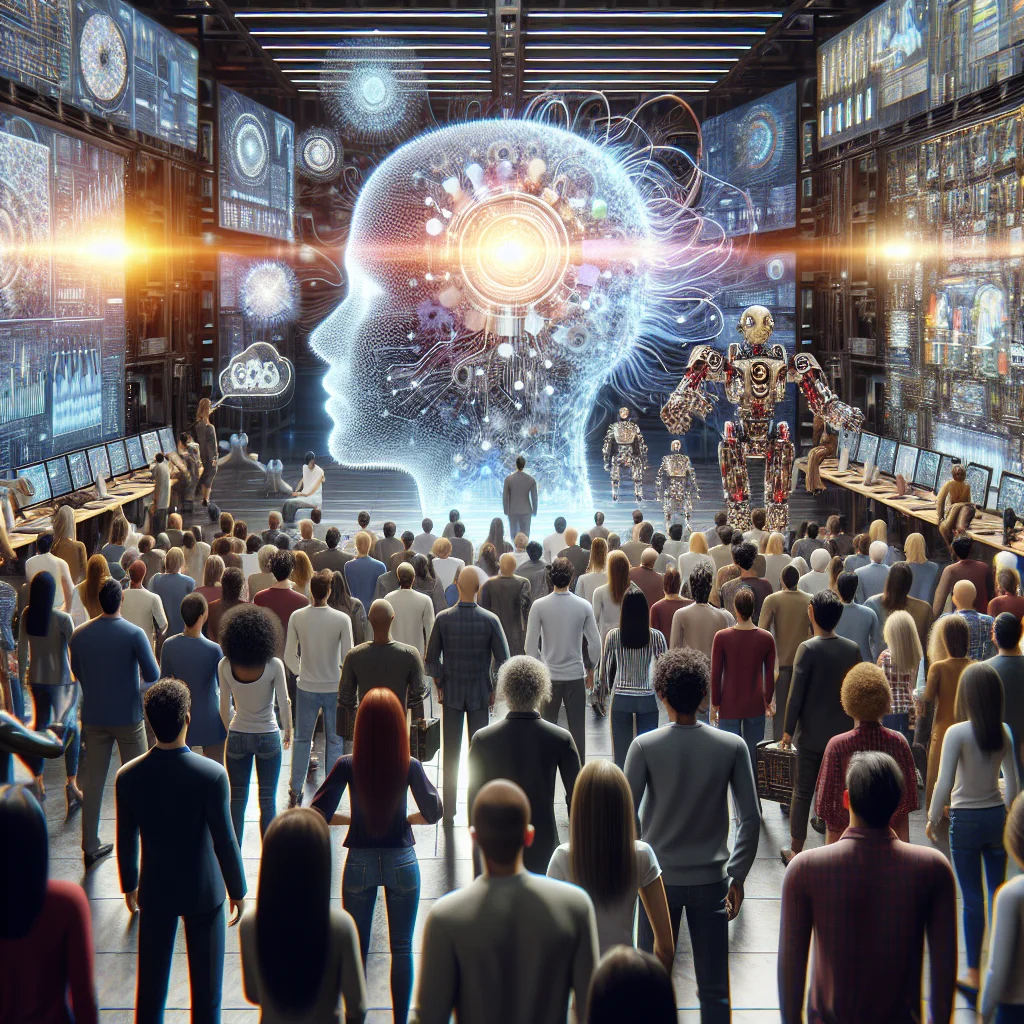Exploring the Latest Trends and Applications in AI Technology
April 08, 2025

Artificial intelligence (AI) has transformed from a niche technology to a pivotal force in numerous aspects of life, influencing how we interact, work, and learn. As we delve into 2025, it is crucial to understand the latest trends in AI and their applications across various industries. This article explores these advancements, highlighting their significance in our increasingly digital world.
What Are the Latest Trends in AI?
The AI landscape is ever-evolving, and 2025 has brought with it several noteworthy trends that are shaping the future.
-
Generative AI: This trend focuses on AI technologies that can create new content, from text to art, music, and even code. Generative Adversarial Networks (GANs) have gained immense popularity, helping businesses and artists alike to innovate and explore new creative avenues.
-
AI Ethics and Governance: As AI capabilities expand, so do concerns regarding data privacy, algorithmic bias, and ethical deployment. Businesses are increasingly prioritizing fairness and transparency in AI, creating frameworks that guide responsible AI use.
-
Human-AI Collaboration: AI is not simply replacing jobs; it is enhancing human capabilities. Many companies rely on AI-powered tools that assist with decision-making, data analysis, and customer service, allowing employees to focus on higher-level tasks.
How Is AI Being Applied in Various Industries?
AI technology is now a cornerstone across numerous sectors, each leveraging its strengths to optimize performance and deliver value. Here’s a look at some significant applications:
-
Healthcare: AI has revolutionized healthcare by aiding in diagnostics, personalized medicine, and patient management. Machine learning algorithms analyze medical records to identify patterns and predict health outcomes, improving patient care.
-
Finance: In finance, AI assists in risk assessment, fraud detection, and algorithmic trading. Financial institutions use AI to automate processes, enhance customer interactions, and ensure compliance with regulations seamlessly.
-
Retail: AI optimizes inventory management, personalizes shopping experiences, and improves supply chain efficiency. Retailers use AI-driven analytics to understand consumer preferences and tailor their offerings accordingly.
-
Transportation: AI's role in transportation is expanding through autonomous vehicles and smart traffic management systems. These technologies aim to minimize accidents, improve traffic flow, and enhance overall efficiency in urban planning.
Insight into AI Conversations with Experts
The perspectives of thought leaders in AI provide valuable insights into current trends and future directions. For example, Dr. Anna Lee, a renowned AI researcher, states that, "The intersection of AI and ethics is crucial as we navigate these technologies. Ensuring that AI serves humanity positively is a shared responsibility among developers, businesses, and regulators." Such discussions highlight the significance of addressing ethical concerns as AI applications grow.
What Should Consumers Know About AI Technology?
As AI continues to be integrated into everyday life, consumers should remain informed about its impacts. It's essential to understand both the benefits and challenges that AI presents. Here are a few considerations:
- Privacy Concerns: With AI systems often relying on vast amounts of personal data, consumers should be aware of how their data is being used and the implications for privacy.
- Reliability and Accuracy: While AI can enhance decision-making, it is not infallible. Users should recognize the limitations of AI systems, acknowledging possible errors or biases.
Fascinating Facts About AI in 2025
- AI Adoption Rates: Research shows that over 70% of businesses are now integrating AI solutions into their operations, a significant increase from just a few years ago.
- Job Creation: Contrary to fears of job loss, studies indicate that AI-related advancements are predicted to create over 2 million new jobs in emerging fields within the next five years.
- Consumer Sentiment: Surveys reveal that 60% of consumers are embracing AI innovations, recognizing the convenience and personalization offered by AI-driven services.
Conclusion
As we navigate through 2025, the trends and applications of AI technology underscore its transformative power across industries. From generative AI to ethical governance, understanding these dynamics is vital for anyone interested in technology. As AI continues to develop, staying informed can help individuals and businesses make the most of this incredible advancement.
Back